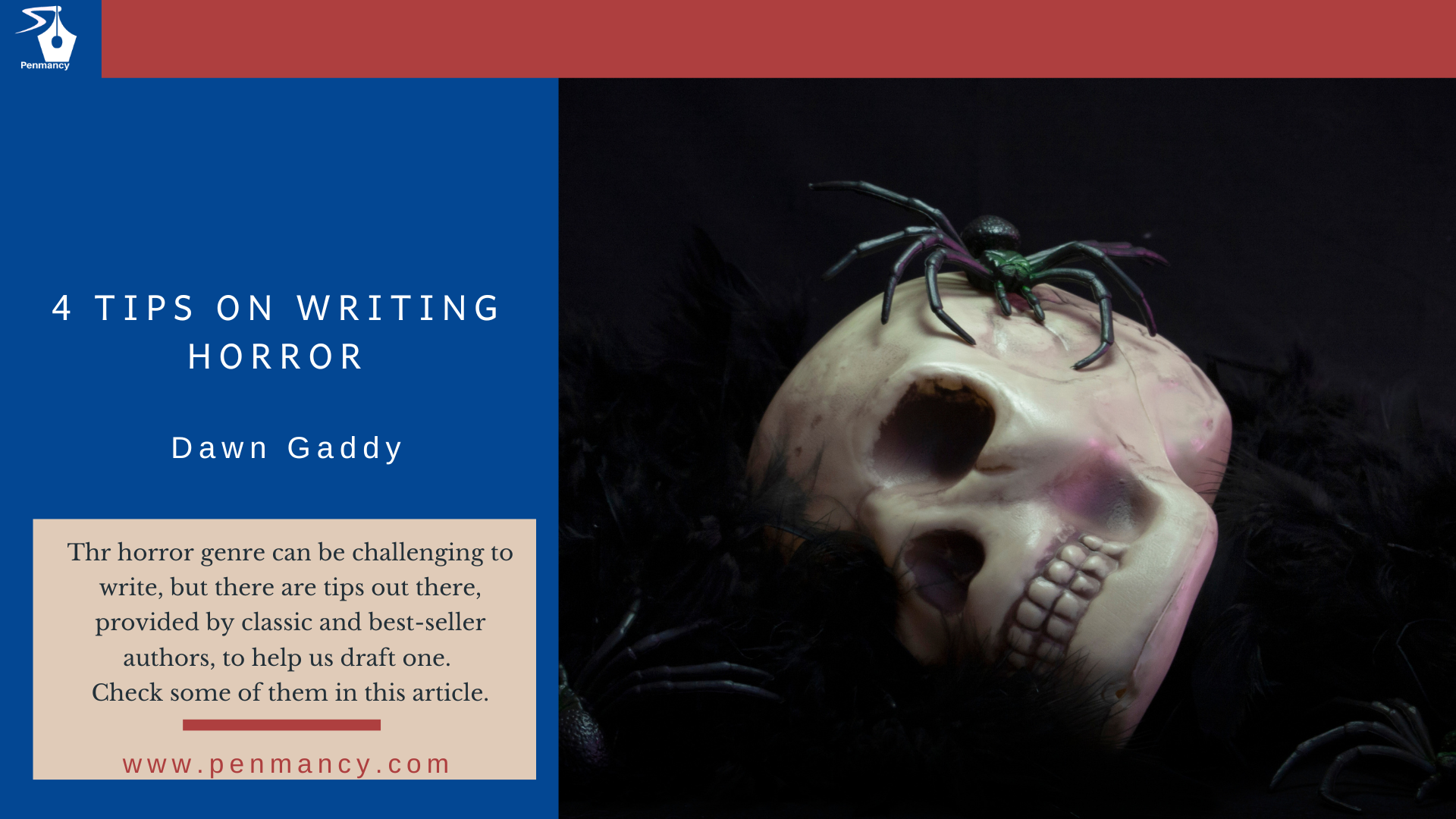
Lots of people have an inexplicable fascination with experiences that bring humans anticipation and dread. According to the online science magazine Nautilus, horror stories allow consumers to safely engage with frightening phenomena and at the same time, satisfy their morbid curiosity. Additionally, horror fiction also gives people a way to deal with their anxieties, as they have more control over what stresses them out. The psychological effects of the genre have contributed to the rise of horror in many aspects, be it in books, movies, or comics.
Many horror stories gravitate towards the human condition, where characters have to face their fears in order to succeed and survive. As a writer, you may similarly find yourself drawn to all things dark. However, crafting a great horror tale requires you to go beyond jumpscares and monsters. Here are some tips that you can apply when writing your own horror:
Choose your niche
Similar to all forms of writing, you have to be mindful not to be too spread out in your scope, or else the story will likely get watered down. To focus on a specific fear factor, it’s important to understand what struggles you want your characters to face and what subgenre would guide your narrative. Tim Waggoner’s Writing in the Dark gives great insight into the specific types of horror – realist horror, psychological horror, cosmic horror, and body horror – with each one having its own key elements. Identifying your preferred topics can help you craft your plot, and guide you on what twists and turns to include in your story.
Read more horror stories
For all authors, reading is an essential part of the writing process because it’s where you get inspiration and learn which techniques work. It’s difficult to immerse someone in your own fictional world without first understanding what makes storytelling good. Acclaimed horror novelist Stephen King is a big believer in reading and writing a lot. In some interviews, he recommends reading for five hours and writing six pages (or over 1,000 words) daily. So, what is one of the best places to start? King’s own bestseller On Writing: A Memoir Of The Craft sold over a million copies, and it outlines how to tell a great story with practical advice. The book provides insights into how King was able to bring his life experiences and build habits into his writing, which can be a framework for aspiring horror writers on how to tackle the work. Reading is also a good way to better understand the horror genre, and even learn how to overcome clichés.
Write about fears that you know
A personal connection is crucial to having an impactful story, especially for horror readers. One way of driving a plot is the use of fears – fear of failure, loneliness, sickness, death – as these are common concerns in a lot of people. This is why popular movies like Poltergeist, The Conjuring, andA Quiet Place revolve around family themes, as many can relate to characters who want to protect their loved ones from evil forces. To add more depth, you can start by looking into your own personal fears. Our post on “The Plot of Plotting” shares how you can give a voice to your own characters by modeling them after yourself or someone who has inspired you. Crafting characters with their own fears and aspirations can make them more engaging, real, and relatable.
Be mindful of how you write
After identifying plot points, characters, and motivations, you need to find the words to describe your story. Most beginner writers tend to communicate that “certain things happened” rather than engaging the readers’ imagination. As emphasized by Waggoner in his aforementioned book, over explaining the environment can sometimes take away from the experience, so you need to be careful with how you present your stories. When writing, make sure to use your character’s five senses to depict their thoughts and feelings; for example, instead of writing “he said fearfully”, you can use “he stammered”. Taking the time to improve your writing can help readers immerse themselves into your narrative.
